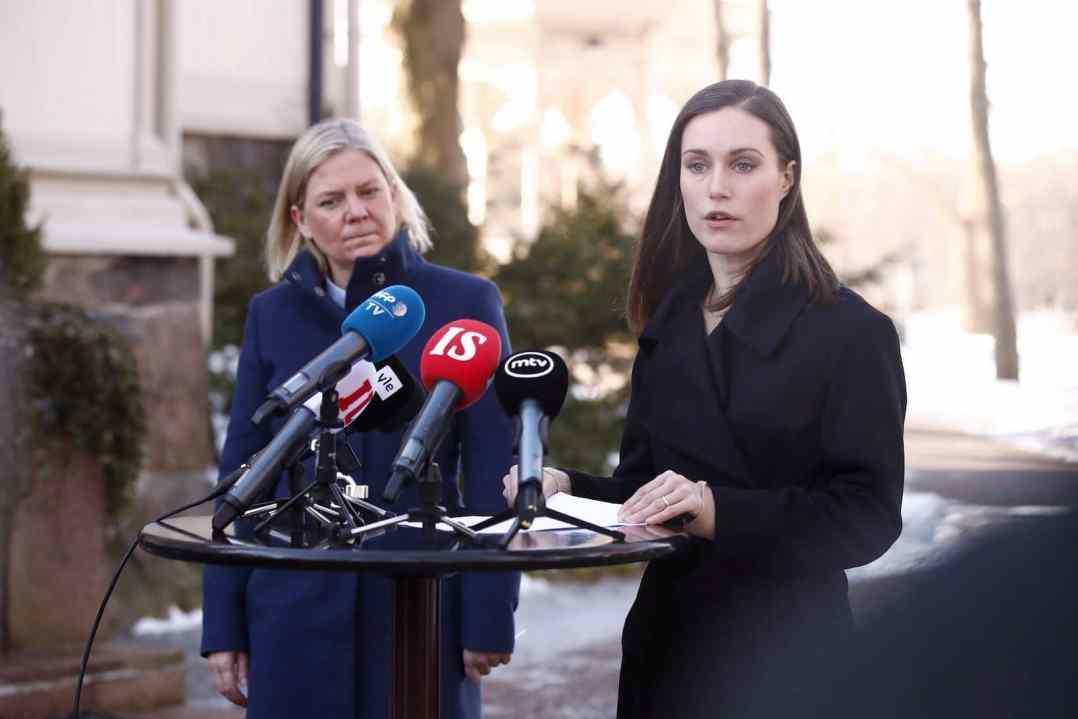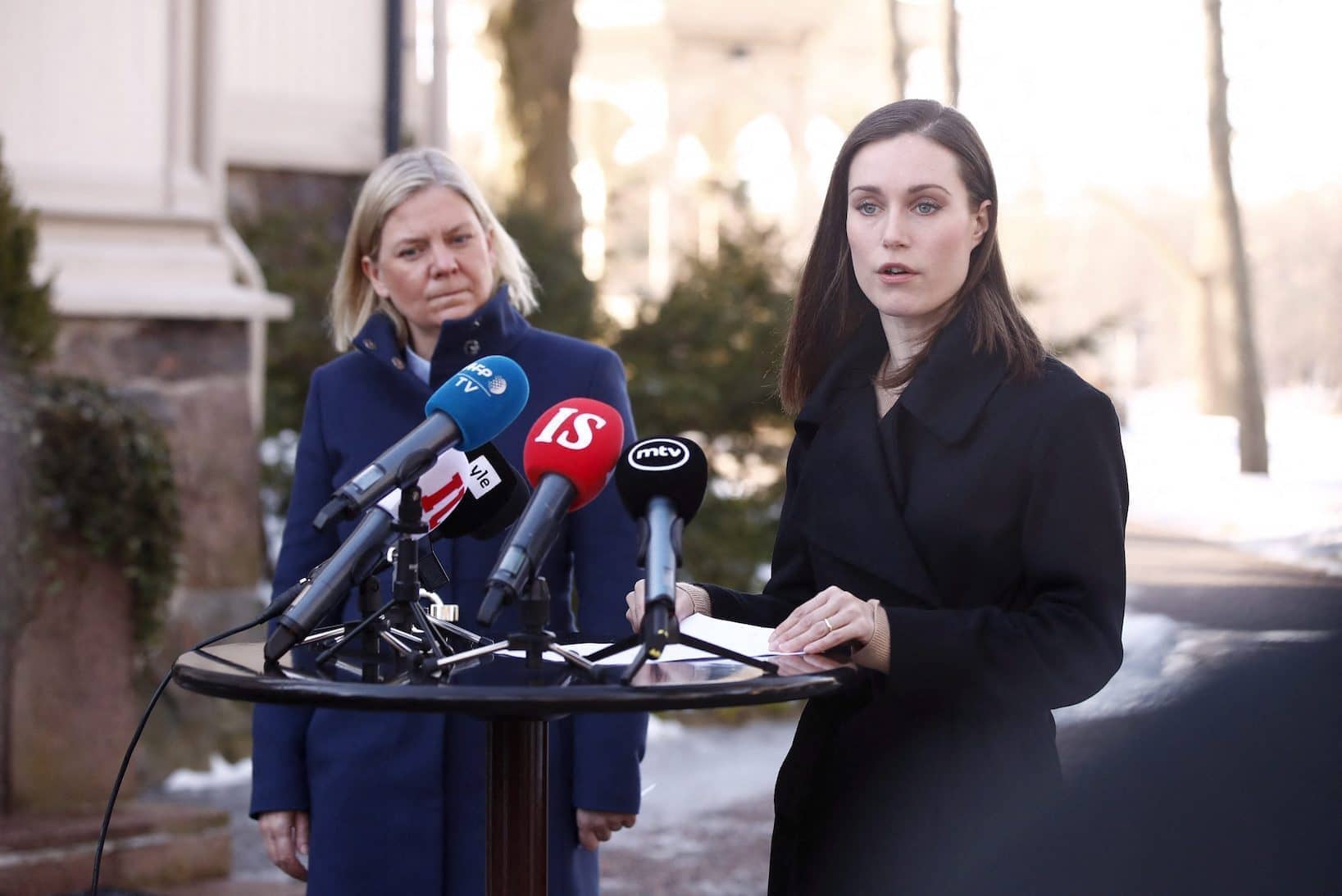In the past six weeks, Finland and Sweden’s security policies have changed more than they have over the past six decades. In much of what they do, the two countries come as a couple and were militarily neutral during the Cold War – but their defence cooperation has only deepened since Russia’s invasion of Crimea in 2014. Now, the two are about to break with their long history of non-alignment. Their applications to join Nato are likely to come in the next two months.
At a press conference in Stockholm this week, the prime ministers of the two countries – Sanna Marin and Magdalena Andersson – came close to admitting they want their countries to join the western military alliance. That declaration cannot be understated. Sweden has been neutral since the time of the Napoleonic wars and prided itself on its non-alignment. Finland’s situation is more complex, not least because of its geography. It became independent from Russia in 1917 and after its war with the Soviet Union in 1939-40, the country was practically forced into isolation. Sweden and Finland have, therefore, traditionally sought a third way between Russia and the West. Both leaders will need to convince their parliamentarians that the time has finally come to abandon that long history.
The Finns are halfway there. With more than two-thirds of the voters in favour, the public support for Nato membership is strong. A recent survey of parliamentarians suggested that only six of the 200 Finnish MPs are against membership. Marin has just made public her government’s analysis of the costs and benefits of joining, and the conclusions are pretty obvious. After Russia’s full-scale invasion of Ukraine in February, the benefits of joining Nato have increased radically – just as the costs of standing alone have multiplied. While Russia may not be an immediate threat to Finland’s security, Nato membership would make the Kremlin less likely to mess with the Finns.
The same conclusion holds for the Swedes, and even more so since a Russian move on the Baltic states would likely be preceded by an occupation of Gotland, a Swedish island in the Baltic Sea, to close the air space for Nato air forces. But Magdalena Andersson and her government have been slow to respond to the new security situation, and the country is a few weeks behind Finland. Unlike Finland, Sweden has problems speaking plainly about the pros and cons of Nato membership. The country has not been at war since 1814, and its leaders seem to have forgotten the language of strategy.
As long as Russia is bogged down by its war in Ukraine, an attack on Finland and Sweden seems unlikely
Sweden’s defence minister, Peter Hultqvist, has repeatedly ruled out Nato membership. Last year, he said that membership was never going to be on the cards as long as he remains in his job. Just a month ago, Andersson dismissed the project too and said an application to join Nato now would have a destabilising effect on Nordic security. She now seems to have changed her mind, but the fear of stoking tension lingers. Would a Swedish bid to join Nato provoke strong reactions from the Kremlin? A few days before Andersson’s barbed comments about Nato membership, four Russian jetfighters had violated Swedish airspace just outside Gotland. The Swedish fear of Russian retaliation isn’t fiction.
In reality, the main opposition to Nato membership in Sweden is not Vladimir Putin but the country’s own nostalgia for neutrality. Magdalena Andersson’s party, the Social Democrats, is split, and for one wing of the party, Nato sends a shiver down its spine. They combine habitual anti-Americanism with a desire to restore Swedish foreign policy in the image of Olof Palme – an anti-nuclear and anti-imperialist Third World champion who governed Sweden in the 1970s and 1980s. Together with Germany’s Willy Brandt and Austria’s Bruno Kreisky, Palme was a leading star in the group of new internationalists who sought that third way between the Soviets and the West.
The Finnish debate has these echoes from the past too – mostly from those with an anti-American chip on their shoulders. But Finland is close to making its decision to join Nato. And when it does, Sweden will follow.
For now, as long as Russia is bogged down by its war in Ukraine, an attack on Finland and Sweden seems unlikely. Both countries have the capacity to inflict heavy initial injury on an aggressor and are likely to get Nato security guarantees soon. There has been much talk that Nato expansion is ‘poking the Russian bear’. Stockholm and Helsinki don’t see it that way.







Comments